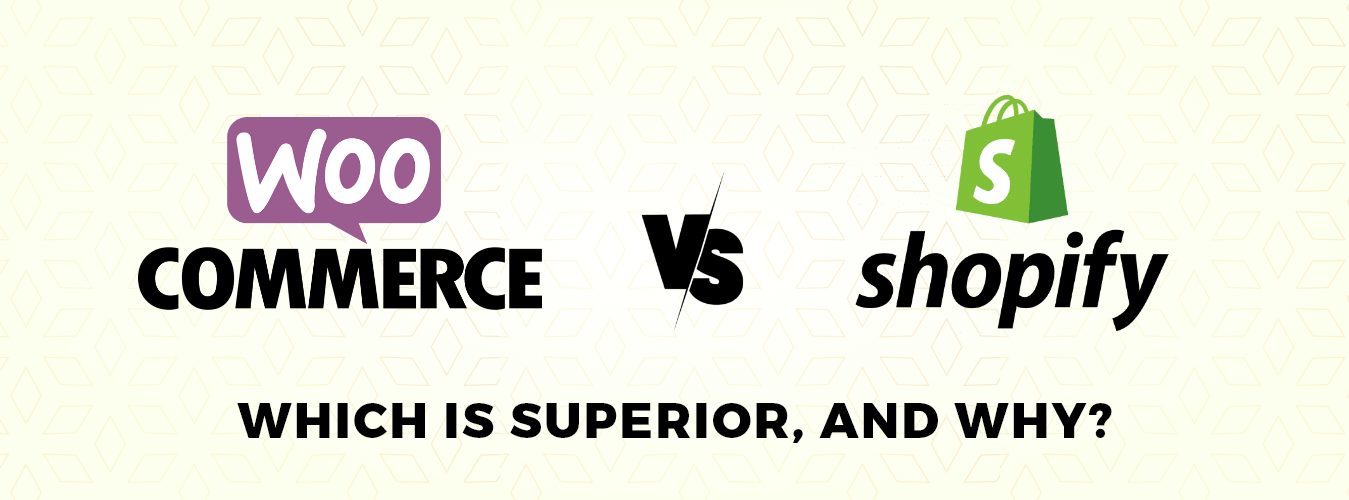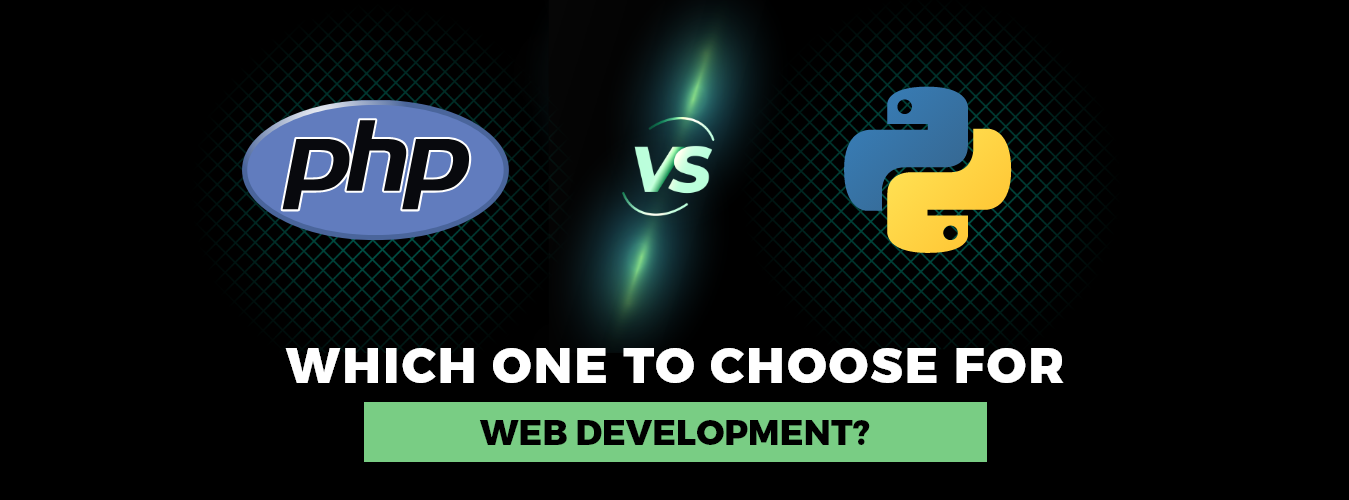If we talk about WooCommerce vs Shopify both are popular e-commerce platforms, which is superior depending on the user’s specific needs and requirements.
WooCommerce vs Shopify
WooCommerce is an open-source plugin for the WordPress content management system and is free to use. It provides flexibility and customization options but requires technical knowledge and resources to set up and maintain. WooCommerce is a good choice for those who want full control over their online store’s design and functionality and have the technical expertise to manage it.
On the other hand, Shopify is a hosted solution that provides a user-friendly interface and takes care of the technical aspects of running an online store. It is a good choice for those who want a simple and hassle-free solution and are willing to pay a monthly fee for convenience. Shopify also provides a wide range of features and integrations, but customization options are limited compared to WooCommerce. Lets disucss WooCommerce vs Shopify in details:
Cost
WooCommerce is a free, open-source plugin for the WordPress content management system, and its basic functionality is available at no cost. However, additional costs are associated with using WooCommerce, including hosting, security, and plugins for added features. The total cost of using WooCommerce can vary greatly depending on the user’s specific needs, but on average, it can range from $20 to $200 per month.
On the other hand, Shopify is a paid, hosted platform that offers a range of plans starting at $29 per month. In addition to the monthly fee, all plans have transaction fees except for the most expensive ones. The cost of using Shopify can also vary greatly depending on the user’s specific needs, but on average, it can range from $29 to $299 per month.
While WooCommerce is free to use, it can become expensive quickly when considering the additional costs associated with hosting, security, and plugins. On the other hand, Shopify is a paid solution but provides a user-friendly interface and takes care of the technical aspects of running an online store, making it a more convenient and cost-effective solution for some users.

Ease of Use
In terms of ease of use, Shopify has a clear advantage over WooCommerce. Shopify is a hosted platform that provides a user-friendly interface and takes care of the technical aspects of running an online store. It is designed to be simple and intuitive, making it easy for users to set up and manage their online store without needing technical expertise.
WooCommerce, on the other hand, is a free, open-source plugin for the WordPress content management system. While it provides many flexibility and customization options, it requires technical knowledge and resources to set up and maintain. Setting up and managing a WooCommerce store can be more complex and time-consuming than using Shopify.
Shopify is the better option for those who want a simple and hassle-free solution and don’t have the technical expertise to manage a more complex platform like WooCommerce. WooCommerce is a good choice for those who want more control over the design and functionality of their online store and have the technical resources to manage it.

Payment Methods
Both Shopify and WooCommerce offer a wide range of payment options for online stores.
Shopify offers a built-in payment gateway called Shopify Payments powered by Stripe. In addition to Shopify Payments, Shopify also integrates with various other payment gateways, including PayPal, Amazon Pay, and many more, depending on the region and plan.
WooCommerce also integrates with various payment gateways, including PayPal, Stripe, and Amazon Pay. However, as an open-source plugin, WooCommerce provides more flexibility and payment gateways options than Shopify. This allows for the integration of local and regional payment options, making it a good choice for users selling in different countries.

Integrations and Add-ons
Both Shopify and WooCommerce offer a wide range of integrations and add-ons to enhance the functionality of an online store.
Shopify has a large app store that provides many integrations and add-ons, including marketing, sales, shipping tools, social media integrations, and more. Shopify also integrates with various third-party services, such as email marketing platforms, accounting software, and live chat solutions.
WooCommerce, being an open-source platform, provides even more options for integrations and add-ons. In addition to a wide range of plugins available through the WordPress plugin repository. WooCommerce development services providers can integrates with various third-party services and can be extended using custom development.
Both Shopify and WooCommerce offer a wide range of integrations and add-ons, but WooCommerce provides more options and flexibility for custom integrations and development. Shopify is a good choice for those who want a simple and convenient solution with many add-ons. At the same time, WooCommerce is a good choice for those who want more options and control over the integration and functionality of their online store.

Dropshipping
Both Shopify and WooCommerce support dropshipping, a fulfillment method where the store owner doesn’t keep products in stock but instead transfers customer orders and shipment details to the supplier, who then ships the products directly to the customer.
Shopify provides various built-in features to support dropshipping, including a directory of suppliers and integration with popular dropshipping services. In addition, the Shopify app store provides a wide range of dropshipping plugins and apps to enhance the functionality of an online store.
WooCommerce also supports dropshipping and has a wide range of plugins available through the WordPress plugin repository to support dropshipping. As an open-source platform, WooCommerce also provides more flexibility and options for custom development, which can be useful for store owners who want to build custom integrations with their suppliers.
Get Your Own Empowered Web Application Development
contact usBoth Shopify and WooCommerce support dropshipping, and the choice between the two ultimately depends on the specific needs and requirements of the user. Shopify provides a simple and convenient solution with a wide range of built-in features and add-ons, while WooCommerce provides more options and flexibility for custom integrations and development.

Scalability and Growth
Shopify is a fully hosted platform that provides a scalable infrastructure to support the growth of an online store. As the store grows, the user can upgrade their plan to access more resources and features. Shopify also provides various tools and integrations to support the growth of an online store, such as marketing, sales, and shipping tools, social media integrations, and more.
WooCommerce, an open-source plugin for the WordPress content management system, provides even more options for scalability and growth. WordPress is a highly scalable platform, and as the store grows, the user can access more resources and capabilities through plugins, integrations, and custom development.
Shopify provides a simple and convenient solution with many built-in features and add-ons. In contrast, WooCommerce provides more options and flexibility for custom integrations and development to support the growth of an online store. The choice between the two ultimately depends on the specific needs and requirements of the user.
Conclusion
Both Shopify and WooCommerce are popular e-commerce platforms that offer a wide range of features and capabilities for online stores. The choice between the two ultimately depends on the specific needs and requirements of the user. Both platforms support a wide range of payment options, integrations and add-ons, and can support the growth and scalability of an online store. Ultimately, the choice between Shopify and WooCommerce depends on the specific needs and requirements of the user, and both platforms can provide a high-quality e-commerce experience.
Crafting Your Ideal Mobile App/Experience Starts Here!
Ready to elevate your business? Your custom app is just a click away.
Yes Let’s go







